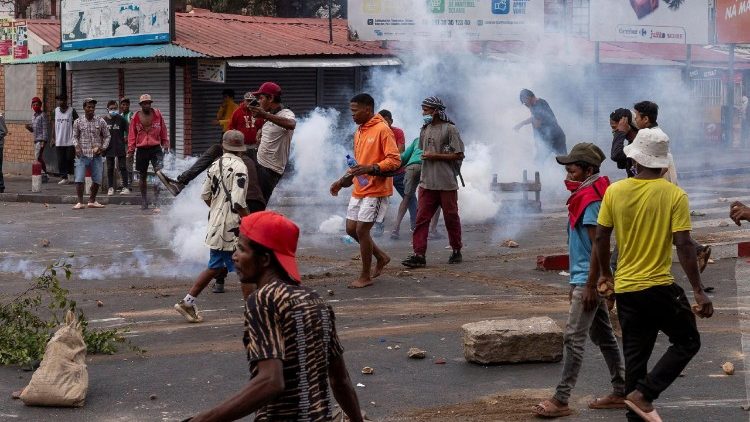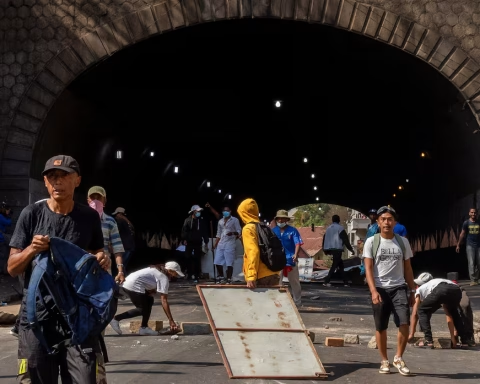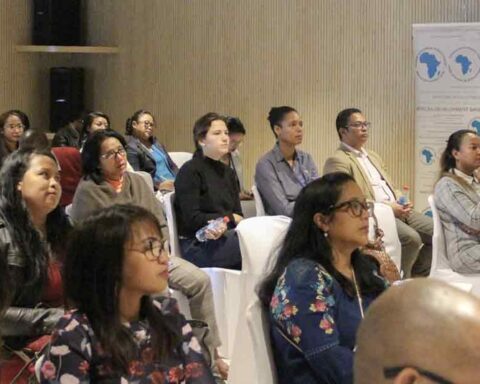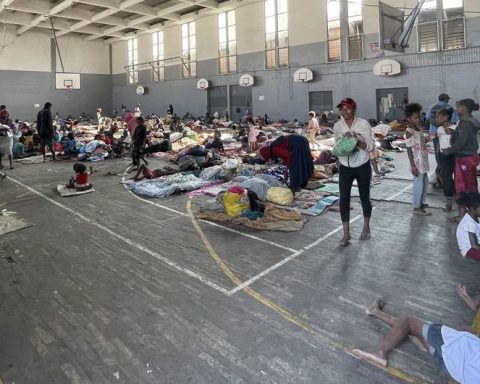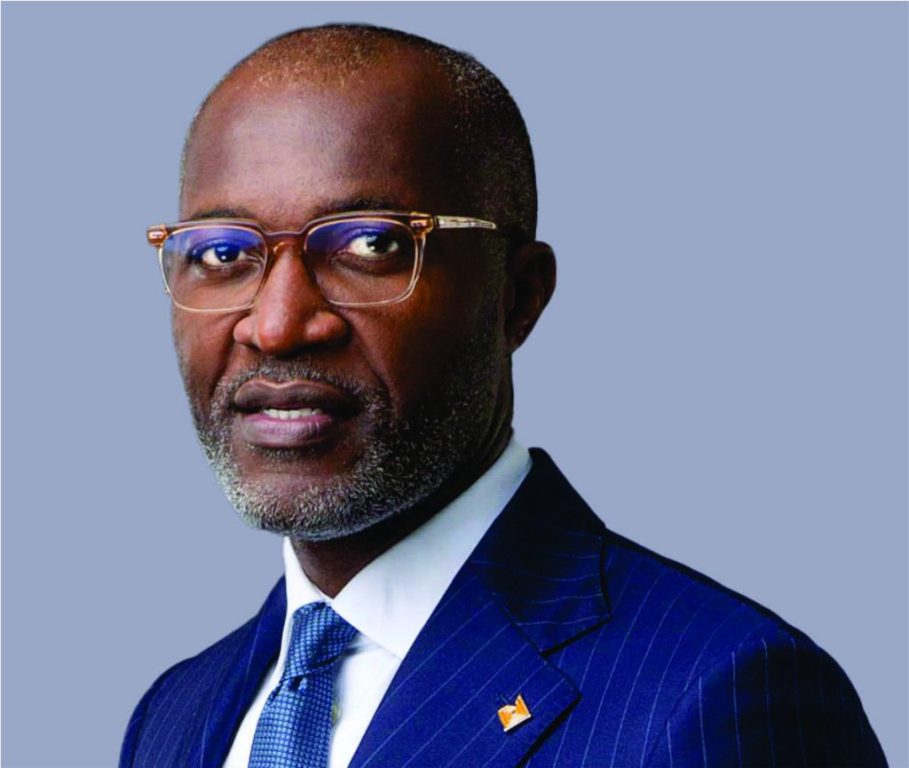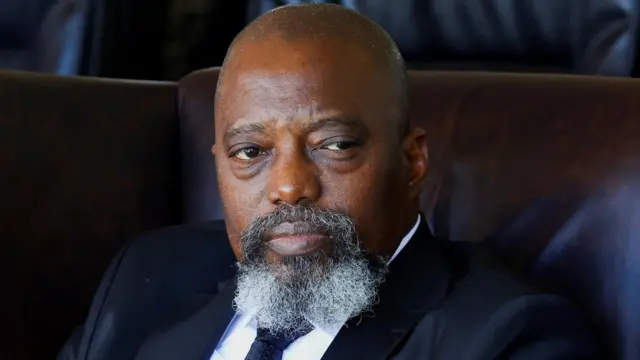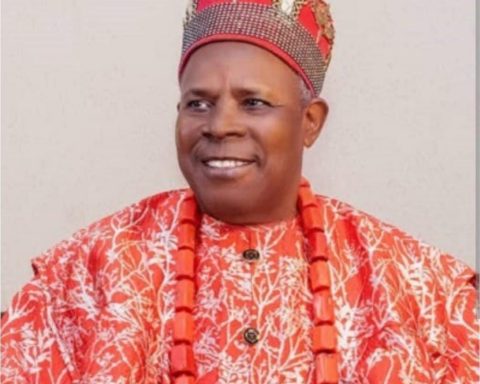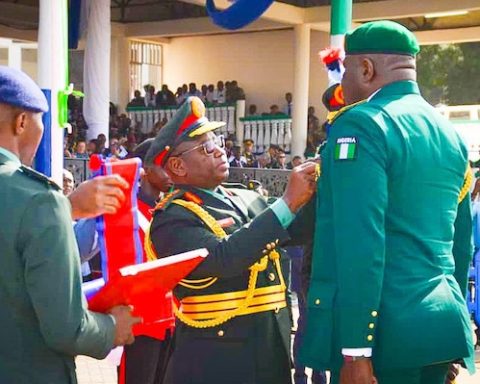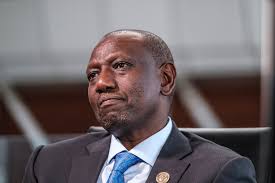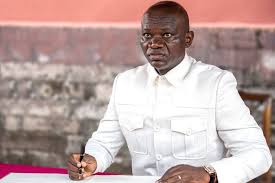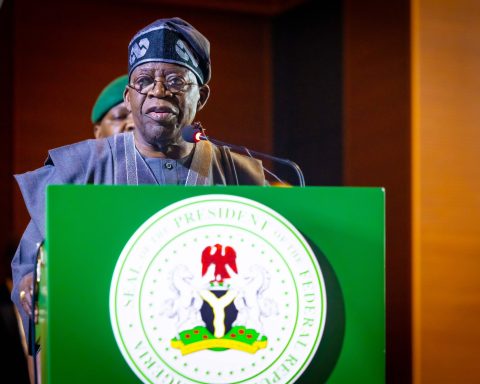President Andry Rajoelina has dissolved Madagascar’s government following days of violent protests over electricity blackouts and water shortages that have left at least 22 people dead and more than 100 injured, according to United Nations figures.
The announcement, made on September 29, dismissed Prime Minister Christian Ntsay and his cabinet, though they will remain in place in caretaker roles until a new government is named.
Join our WhatsApp ChannelThe unrest, which began in the capital on September 25, was initially triggered by anger over chronic power cuts and water shortages but quickly grew into broader demonstrations against corruption, poor governance, and political stagnation. The movement, led largely by young people mobilized through social media, has become the most serious challenge to Rajoelina since his reelection in 2023. Security forces have used teargas and rubber bullets to disperse crowds, sparking clashes, looting, and further violence across Antananarivo.
In a televised address announcing the dissolution, Rajoelina said he had heard the people’s grievances. “I heard the call, I felt the suffering, I understood the impact on daily life,” he declared, promising to form a new cabinet within three days. But many demonstrators rejected the move as insufficient, continuing to demand his resignation and sweeping reforms to key institutions, including the election commission and judiciary. Protest leaders criticized his statement as insincere and insisted that protests would not end without deeper political change.
Demonstrations resumed the day after Rajoelina’s announcement, with protesters carrying placards reading “We need water, we need electricity, Rajoelina out.”
Security forces again deployed teargas to disperse the crowds. While the United Nations has reported 22 deaths and more than 100 injuries, Madagascar’s foreign ministry has disputed those figures, claiming they are based on “rumors or misinformation.”
The crisis underscores the fragility of Madagascar’s democracy. Rajoelina, a former mayor of Antananarivo, first seized power in a 2009 coup before stepping aside in 2014. He returned as an elected president in 2018 and secured a third term in 2023 in a disputed vote marred by allegations of irregularities.
The latest demonstrations, widely known as the “Leo Délestage” movement, a reference to load shedding, have tapped into widespread frustration with years of weak infrastructure, political instability, and deep poverty in one of the world’s poorest nations. For now, the president’s move to dissolve the government has done little to ease tensions. With protesters demanding nothing short of his departure, Madagascar remains gripped by uncertainty over whether the administration can restore stability or if the unrest will escalate into a broader political crisis.
- Prime Business Africa
- Prime Business Africa
- Prime Business Africa
- Prime Business Africa
- Prime Business Africa
- Prime Business Africa
- Prime Business Africa
- Prime Business Africa
- Prime Business Africa
- Prime Business Africa
- Prime Business Africa
- Prime Business Africa
- Prime Business Africa
- Prime Business Africa
- Prime Business Africa
- Prime Business Africa
- Prime Business Africa
- Prime Business Africa
- Prime Business Africa
- Prime Business Africa
- Prime Business Africa
- Prime Business Africa
- Prime Business Africa
- Prime Business Africa
- Prime Business Africa
- Prime Business Africa
- Prime Business Africa
- Prime Business Africa
- Prime Business Africa
- Prime Business Africa
- Prime Business Africa
- Prime Business Africa
- Prime Business Africa
- Prime Business Africa
- Prime Business Africa
- Prime Business Africa
- Prime Business Africa
- Prime Business Africa
- Prime Business Africa
- Prime Business Africa
- Prime Business Africa
- Prime Business Africa
- Prime Business Africa
- Prime Business Africa
- Prime Business Africa
- Prime Business Africa
- Prime Business Africa
- Prime Business Africa
- Prime Business Africa
- Prime Business Africa
- Prime Business Africa
- Prime Business Africa
- Prime Business Africa
- Prime Business Africa
- Prime Business Africa
- Prime Business Africa
- Prime Business Africa
- Prime Business Africa
- Prime Business Africa
- Prime Business Africa
- Prime Business Africa
- Prime Business Africa
- Prime Business Africa
- Prime Business Africa
- Prime Business Africa
- Prime Business Africa
- Prime Business Africa
- Prime Business Africa
- Prime Business Africa
- Prime Business Africa
- Prime Business Africa
- Prime Business Africa
- Prime Business Africa
- Prime Business Africa
- Prime Business Africa
- Prime Business Africa
- Prime Business Africa
- Prime Business Africa
- Prime Business Africa
- Prime Business Africa
- Prime Business Africa
- Prime Business Africa
- Prime Business Africa
- Prime Business Africa
- Prime Business Africa
- Prime Business Africa
- Prime Business Africa
- Prime Business Africa
- Prime Business Africa
- Prime Business Africa
- Prime Business Africa
- Prime Business Africa
- Prime Business Africa
- Prime Business Africa
- Prime Business Africa
- Prime Business Africa
- Prime Business Africa
- Prime Business Africa
- Prime Business Africa
- Prime Business Africa
- Prime Business Africa
- Prime Business Africa
- Prime Business Africa
- Prime Business Africa
- Prime Business Africa
- Prime Business Africa
- Prime Business Africa
- Prime Business Africa
- Prime Business Africa
- Prime Business Africa
- Prime Business Africa
- Prime Business Africa
- Prime Business Africa
- Prime Business Africa
- Prime Business Africa
- Prime Business Africa
- Prime Business Africa
- Prime Business Africa
- Prime Business Africa
- Prime Business Africa
- Prime Business Africa
- Prime Business Africa
- Prime Business Africa
- Prime Business Africa
- Prime Business Africa
- Prime Business Africa
- Prime Business Africa
- Prime Business Africa
- Prime Business Africa
- Prime Business Africa
- Prime Business Africa
- Prime Business Africa
- Prime Business Africa
- Prime Business Africa
- Prime Business Africa
- Prime Business Africa
- Prime Business Africa
- Prime Business Africa
- Prime Business Africa
- Prime Business Africa
- Prime Business Africa
- Prime Business Africa
- Prime Business Africa
- Prime Business Africa
- Prime Business Africa
- Prime Business Africa
- Prime Business Africa
- Prime Business Africa
- Prime Business Africa
- Prime Business Africa
- Prime Business Africa
- Prime Business Africa
- Prime Business Africa
- Prime Business Africa
- Prime Business Africa
- Prime Business Africa
- Prime Business Africa
- Prime Business Africa
- Prime Business Africa
- Prime Business Africa
- Prime Business Africa
- Prime Business Africa
- Prime Business Africa
- Prime Business Africa
- Prime Business Africa
- Prime Business Africa
- Prime Business Africa
- Prime Business Africa
- Prime Business Africa
- Prime Business Africa
- Prime Business Africa
- Prime Business Africa
- Prime Business Africa
- Prime Business Africa
- Prime Business Africa
- Prime Business Africa
- Prime Business Africa
- Prime Business Africa
- Prime Business Africa
- Prime Business Africa
- Prime Business Africa
- Prime Business Africa
- Prime Business Africa
- Prime Business Africa
- Prime Business Africa
- Prime Business Africa
- Prime Business Africa
- Prime Business Africa
- Prime Business Africa
- Prime Business Africa
- Prime Business Africa
- Prime Business Africa
- Prime Business Africa
- Prime Business Africa
- Prime Business Africa
- Prime Business Africa
- Prime Business Africa
- Prime Business Africa
- Prime Business Africa
- Prime Business Africa
- Prime Business Africa
- Prime Business Africa
- Prime Business Africa
- Prime Business Africa
- Prime Business Africa
- Prime Business Africa
- Prime Business Africa
- Prime Business Africa
- Prime Business Africa
- Prime Business Africa
- Prime Business Africa
- Prime Business Africa
- Prime Business Africa
- Prime Business Africa
- Prime Business Africa
- Prime Business Africa
- Prime Business Africa
- Prime Business Africa
- Prime Business Africa
- Prime Business Africa
- Prime Business Africa
- Prime Business Africa
- Prime Business Africa
- Prime Business Africa
- Prime Business Africa
- Prime Business Africa
- Prime Business Africa
- Prime Business Africa
- Prime Business Africa
- Prime Business Africa
- Prime Business Africa
- Prime Business Africa
- Prime Business Africa
- Prime Business Africa
- Prime Business Africa
- Prime Business Africa
- Prime Business Africa
- Prime Business Africa
- Prime Business Africa
- Prime Business Africa
- Prime Business Africa
- Prime Business Africa
- Prime Business Africa
- Prime Business Africa
- Prime Business Africa
- Prime Business Africa
- Prime Business Africa
- Prime Business Africa
- Prime Business Africa
- Prime Business Africa
- Prime Business Africa
- Prime Business Africa
- Prime Business Africa
- Prime Business Africa
- Prime Business Africa
- Prime Business Africa
- Prime Business Africa
- Prime Business Africa
- Prime Business Africa
- Prime Business Africa
- Prime Business Africa
- Prime Business Africa
- Prime Business Africa
- Prime Business Africa
- Prime Business Africa
- Prime Business Africa
- Prime Business Africa
- Prime Business Africa
- Prime Business Africa
- Prime Business Africa
- Prime Business Africa
- Prime Business Africa
- Prime Business Africa
- Prime Business Africa
- Prime Business Africa
- Prime Business Africa
- Prime Business Africa
- Prime Business Africa
- Prime Business Africa
- Prime Business Africa
- Prime Business Africa
- Prime Business Africa
- Prime Business Africa
- Prime Business Africa
- Prime Business Africa
- Prime Business Africa
- Prime Business Africa
- Prime Business Africa
- Prime Business Africa
- Prime Business Africa
- Prime Business Africa
- Prime Business Africa
- Prime Business Africa
- Prime Business Africa
- Prime Business Africa
- Prime Business Africa
- Prime Business Africa
- Prime Business Africa
- Prime Business Africa
- Prime Business Africa
- Prime Business Africa
- Prime Business Africa
- Prime Business Africa
- Prime Business Africa
- Prime Business Africa
- Prime Business Africa
- Prime Business Africa
- Prime Business Africa
- Prime Business Africa
- Prime Business Africa
- Prime Business Africa
- Prime Business Africa
- Prime Business Africa
- Prime Business Africa
- Prime Business Africa
- Prime Business Africa
- Prime Business Africa
- Prime Business Africa
- Prime Business Africa
- Prime Business Africa
- Prime Business Africa
- Prime Business Africa
- Prime Business Africa
- Prime Business Africa
- Prime Business Africa
- Prime Business Africa
- Prime Business Africa
- Prime Business Africa
- Prime Business Africa
- Prime Business Africa
- Prime Business Africa
- Prime Business Africa
- Prime Business Africa
- Prime Business Africa
- Prime Business Africa
- Prime Business Africa
- Prime Business Africa
- Prime Business Africa
- Prime Business Africa
- Prime Business Africa
- Prime Business Africa
- Prime Business Africa
- Prime Business Africa
- Prime Business Africa
- Prime Business Africa
- Prime Business Africa
- Prime Business Africa
- Prime Business Africa
- Prime Business Africa
- Prime Business Africa
- Prime Business Africa
- Prime Business Africa
- Prime Business Africa
- Prime Business Africa
- Prime Business Africa
- Prime Business Africa
- Prime Business Africa
- Prime Business Africa
- Prime Business Africa
- Prime Business Africa
- Prime Business Africa
- Prime Business Africa
- Prime Business Africa
- Prime Business Africa
- Prime Business Africa
- Prime Business Africa
- Prime Business Africa
- Prime Business Africa
- Prime Business Africa
- Prime Business Africa
- Prime Business Africa
- Prime Business Africa
- Prime Business Africa
- Prime Business Africa
- Prime Business Africa
- Prime Business Africa
- Prime Business Africa
- Prime Business Africa
- Prime Business Africa
- Prime Business Africa
- Prime Business Africa
- Prime Business Africa
- Prime Business Africa
- Prime Business Africa
- Prime Business Africa
- Prime Business Africa
- Prime Business Africa
- Prime Business Africa
- Prime Business Africa
- Prime Business Africa
- Prime Business Africa
- Prime Business Africa
- Prime Business Africa
- Prime Business Africa
- Prime Business Africa
- Prime Business Africa
- Prime Business Africa
- Prime Business Africa
- Prime Business Africa
- Prime Business Africa
- Prime Business Africa
- Prime Business Africa
- Prime Business Africa
- Prime Business Africa
- Prime Business Africa
- Prime Business Africa
- Prime Business Africa
- Prime Business Africa
- Prime Business Africa
- Prime Business Africa
- Prime Business Africa
- Prime Business Africa
- Prime Business Africa
- Prime Business Africa
- Prime Business Africa
- Prime Business Africa
- Prime Business Africa
- Prime Business Africa
- Prime Business Africa
- Prime Business Africa
- Prime Business Africa
- Prime Business Africa
- Prime Business Africa
- Prime Business Africa
- Prime Business Africa
- Prime Business Africa
- Prime Business Africa
- Prime Business Africa
- Prime Business Africa
- Prime Business Africa
- Prime Business Africa
- Prime Business Africa
- Prime Business Africa
- Prime Business Africa
- Prime Business Africa
- Prime Business Africa
- Prime Business Africa
- Prime Business Africa
- Prime Business Africa
- Prime Business Africa
- Prime Business Africa


